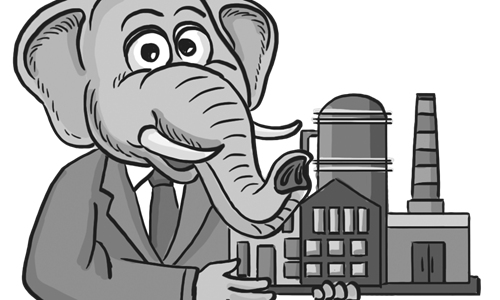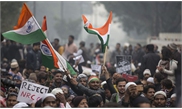COMMENTS / EXPERT ASSESSMENT
Modi to further push ‘Make in India’

Illustration: Xia Qing/GT
Since Indian Prime Minister Narendra Modi took office in 2014, his political approaches have shown quite different characteristics from the former Nationalist Congress Party (NCP) government, and some of his policies have made obvious progress. Modi's strategy mainly focuses on striving for practical interests on all fronts for India and expanding markets for "Make in India," which is posing impacts on China's Belt and Road Initiative (BRI) and competition with "Made in China."Modi was elected as the 14th Prime Minister of India after winning India's general election over the NCP of India in 2014, and was re-elected in 2019. After taking office, Modi showed some remarkable political characteristics. His absence at the 2017 Belt and Road Forum in Beijing unexpectedly aroused discussions and concerns among various media outlets around the world.
Modi showed great interest in China's economic development model by proposing a large-scale infrastructure plan, aiming to change the old and backward situation of India's infrastructure and stimulate the country's economic growth.
Because the Modi-led National People's Party (NPP) has carried out several major reforms, which strengthened the construction of the party's social grassroots organizations, and won considerable success and support in Indian society, it can be expected that the NCP would not pose a major challenge for Modi for a long time. Therefore, it is key to understand and comprehend Modi's strategy, which mainly includes the following aspects that are worth attention:
The ultimate goal of Modi's strategy is to obtain "real interests," which include territory, energy, stability, law, finance, defense, and the markets of "Make in India," with the focus on India's all-round expansion.
One of the major pivots of Modi's strategy is to make full use of the good relationship between India's official and private economy, so as to lay a long-term foundation for India to export its influence, enhance its international status, and boost its economic growth.
Modi's strategy will strive to expand markets for "Make in India." Therefore, Modi now attaches great importance to "freedom and justice" and will further emphasize it in the future.
Modi's strategy makes full use of India's abundant human resources, which is the key to striving for the world's capital support.
Overall, the influence of Modi's strategy on China is mainly to constrain the BRI and achieve the goal of containing China and expanding the Indian market and influence by creating a common interest circle with India. However, the weakness of Modi's strategy is that India's economic development might not always be stable all the time. If there is an unexpected and significant decline of its economic growth in the future, this shortcoming of Modi's strategy will be revealed and India's regional influence will face a major crisis accordingly.
The article was compiled based on a report by Beijing-based private strategic think tank Anbound. bizopinion@globaltimes.com.cn


